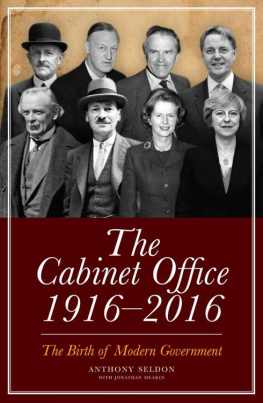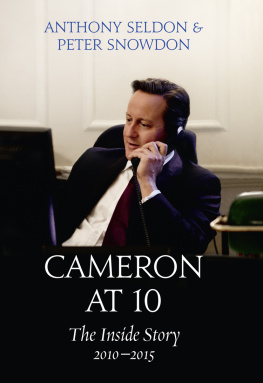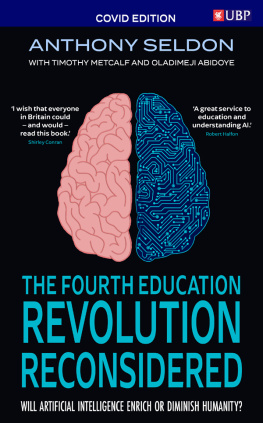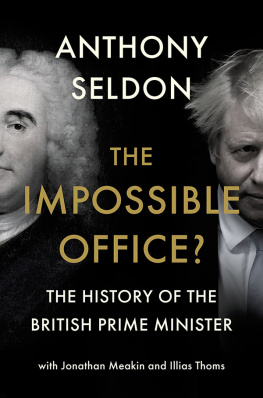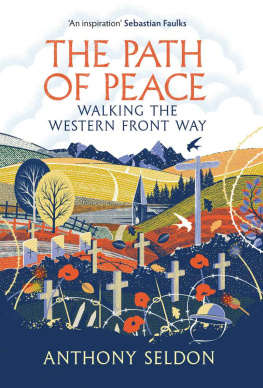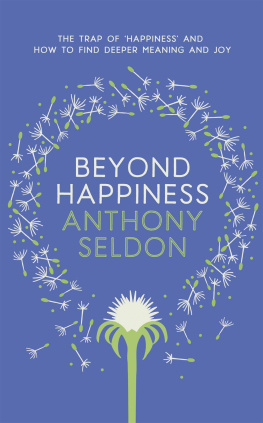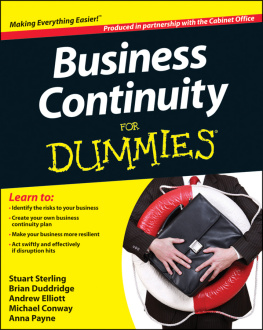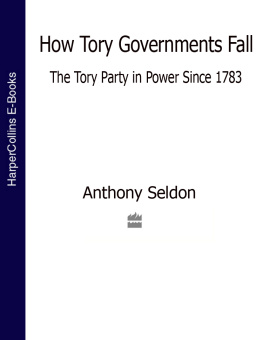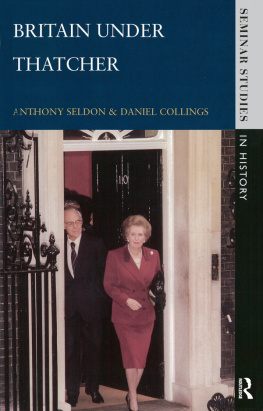Anthony Seldon - The Cabinet Office, 1916–2018
Here you can read online Anthony Seldon - The Cabinet Office, 1916–2018 full text of the book (entire story) in english for free. Download pdf and epub, get meaning, cover and reviews about this ebook. year: 2016, publisher: Biteback Publishing, genre: Politics. Description of the work, (preface) as well as reviews are available. Best literature library LitArk.com created for fans of good reading and offers a wide selection of genres:
Romance novel
Science fiction
Adventure
Detective
Science
History
Home and family
Prose
Art
Politics
Computer
Non-fiction
Religion
Business
Children
Humor
Choose a favorite category and find really read worthwhile books. Enjoy immersion in the world of imagination, feel the emotions of the characters or learn something new for yourself, make an fascinating discovery.
- Book:The Cabinet Office, 1916–2018
- Author:
- Publisher:Biteback Publishing
- Genre:
- Year:2016
- Rating:5 / 5
- Favourites:Add to favourites
- Your mark:
- 100
- 1
- 2
- 3
- 4
- 5
The Cabinet Office, 1916–2018: summary, description and annotation
We offer to read an annotation, description, summary or preface (depends on what the author of the book "The Cabinet Office, 1916–2018" wrote himself). If you haven't found the necessary information about the book — write in the comments, we will try to find it.
The Cabinet Office, 1916–2018 — read online for free the complete book (whole text) full work
Below is the text of the book, divided by pages. System saving the place of the last page read, allows you to conveniently read the book "The Cabinet Office, 1916–2018" online for free, without having to search again every time where you left off. Put a bookmark, and you can go to the page where you finished reading at any time.
Font size:
Interval:
Bookmark:

The Birth of Modern Government
A NTHONY S ELDON
WITH J ONATHAN M EAKIN

T O C HRIS M ARTIN (19732015),
distinguished Principal Private Secretary to the Prime Minister, who epitomised the values of the Civil Service at its best.
Profits from this book are going to the Chris Martin Foundation.
I HAVE BEEN FASCINATED by the Cabinet Office and Civil Service mandarins ever since I wrote my first book, Churchills Indian Summer: The Conservative Government, 19511955, nearly thirty-five years ago, for which I interviewed large numbers of officials, and learnt first-hand from those who had worked with them about the formidable Edward Bridges and Norman Brook. Learning more about the eleven Cabinet Secretaries has made writing this book a delight and a pleasure.
The circumstances of writing over 120,000 words over the summer and autumn of 2016 in under ten weeks were not the easiest. I started writing on the Via Sacra walk from Switzerland to the English Channel along the Western Front in July, returned to find my university is in full swing over the summer, Britain in Brexit, and more importantly have had family illness as a daily concern.
My thanks thus are, far more than usually, profound, though the errors of fact and judgement are entirely my own. First, I would like to thank Jonathan Meakin, my associate author and senior researcher on the book, who has worked for me for seven years and on eight books. He has been a formidable presence. Next came the researchers Beth Oppenheim, Clementine Bunting, Mark Davies, Jennifer Doyle, Ruari Hutchinson, Khurram Jowiya, Sapan Maini-Thompson and Valentina Milanova all highly able, hard-working and good company. I would like to thank a previous co-author, the intellectually brilliant Daniel Collings, for his research in the archives in the United States, and for interviewing Henry Kissinger for the book. All worked tirelessly to ensure that this book was written to an extremely challenging timetable. Without their efforts, this book would not have happened.
I would like to thank the Cabinet Office for their support. My thanks above all to Sue Gray, Robert Honey, Roger Smethurst, Richard Heaton and Alex Thomas, who have been wonderfully helpful and supportive from the first day of the book to the last.
I am particularly grateful for the assistance given by Professor Stuart R. Ball, Professor Jeremy Black, Professor Eugenio F. Biagini, Dr Peter Paul Catterall, Professor David Dilks, Professor Andrew Roberts, Dr Roland Quinault, D. R. Thorpe and Professor Philip Williamson, who all helped with historical information, thereby strengthening the book enormously. My greatest thanks go to my doctoral supervisor and lifelong academic mentor, John Barnes, as well as to Sir David Butler, to Professor Vernon Bogdanor, Professor Dennis Kavanagh and Professor G. W. Jones, four of the leading lights of British contemporary history who have guided me since I became an undergraduate, and to my colleague in contemporary history of over thirty years, the greatest Whitehall scholar of them all, Professor Lord (Peter) Hennessy.
Many hours have been spent in research institutes and archives for this book. I would like to single out Mark Dunton at the National Archives for special thanks; without his efforts this book would not have happened. Thanks also to Stephen Twigge and Neil Cobbett at the National Archives. At the Royal Archives, I am particularly grateful for the assistance of Oliver Urquhart Irvine, Lynnette Beech and Julie Crocker. Additionally, my thanks also to Ceri Humphries at the Churchill Archives Centre at Churchill College, Cambridge. Thanks also to the archivists of the Presidential Library system in the United States and Mary Curry of the National Security Archive at George Washington University.
Thanks to Angela Reed, Peter Mallinson, Robin Dyer and Tim Bunting from Wellington College for continuing to support and inspire me. Thanks to Virginia Preston and Michael Kandiah at the Institute for Contemporary History at Kings College London. Further thanks are due to Colin Harris and Michael Hughes of Oxford Universitys Bodleian Library. Thanks to Katie Guest at Wolverhampton Grammar School for finding out about Norman Brooks schooldays. Especial thanks go to Mark Bridges and Lord (George) Bridges for their information about their grandfather, Edward Bridges.
I would like to offer my special thanks to all the many officials I have interviewed over the years whose words and experiences have shaped the text, none more so than Chris Martin, the brilliant Principal Private Secretary to the Prime Minister until his death aged forty-two in November 2015. My thanks specifically to former officials including Chris Brearley, Bruce Mann, John Chilcot, Philip Rycroft, Paul Britton and Diana Goldsworthy, who agreed to be interviewed for this book.
This book is based on well over 3,000 interviews I have conducted on the subjects covered here for a host of books, articles and projects, from Sir John Colville in March 1977 to Lord Donoughue and Joe Haines with this book in proofs in October 2016. I thank them all.
I would like to thank two retired diplomats, Christopher Everett and Sir Anthony Goodenough, for proofreading the manuscript. Thank you also to Mark Fox for reading the book, and above all to the great historian David Dilks, for reading the book and making suggestions, and whose knowledge of the first four Cabinet Secretaries is unsurpassed.
At the University of Buckingham, I would like to thank my staff and students, Council, Senate and Executive, for their support and encouragement, and especially the Chancellor, Lady Keswick, Chair of Council, Professor Ken Siddle, and Deputy Vice-Chancellor, Professor Alistair Alcock. In my office, I would also like to thank Purnima Anhal, Colleen Carter, Jenny Carter and Sarah Rush for their unflagging support.
At Biteback Publishing, I would like to thank Iain Dale, James Stephens, Olivia Beattie and Victoria Godden for their hard work (especially considering the books narrow timetable). Thanks also to Namkwan Cho who designed the front cover. They have been a very impressive publisher.
Above all, thanks go to the cast of Cabinet Secretaries: Lord Armstrong of Ilminster, Lord Butler of Brockwell, Lord Wilson of Dinton, Lord Turnbull, Lord ODonnell and Sir Jeremy Heywood, who have been so supportive of this project throughout. Their contribution went further than simple help; the examples that they set of crisis management and cool counsel in demanding circumstances helped to inspire me through this books more difficult periods.
Finally, I would like to thank my wife Joanna and my children, Jessica, Susannah and Adam. I am very proud all three now work in public service, two of them in the Civil Service.
A NTHONY S ELDON ,
October 2016, University of Buckingham
by Jeremy Heywood
I M NOT SURE whether it was the intention, but Anthony Seldon has created in this volume a manual, a set text, on being the Cabinet Secretary.
When I mentioned the idea, one of my predecessors said how much he wished that there had been something like this when he first got the job. The book is not just a great gallop through the past 100 years of British administrative history; it succinctly captures the evolving relationship between civil servants and ministers and the nature of collective responsibility.
Font size:
Interval:
Bookmark:
Similar books «The Cabinet Office, 1916–2018»
Look at similar books to The Cabinet Office, 1916–2018. We have selected literature similar in name and meaning in the hope of providing readers with more options to find new, interesting, not yet read works.
Discussion, reviews of the book The Cabinet Office, 1916–2018 and just readers' own opinions. Leave your comments, write what you think about the work, its meaning or the main characters. Specify what exactly you liked and what you didn't like, and why you think so.

